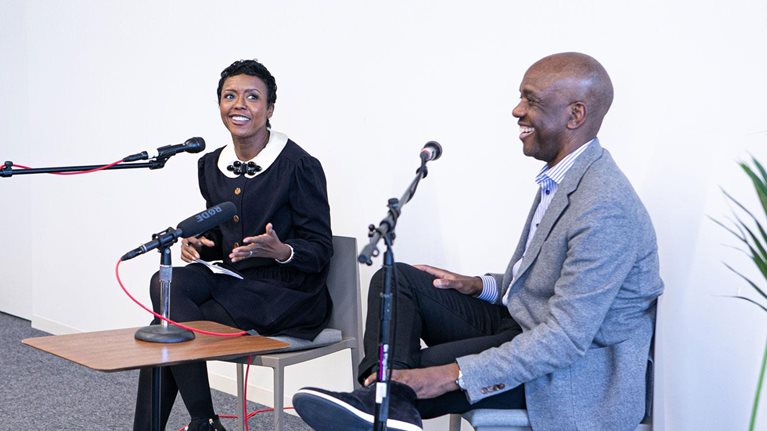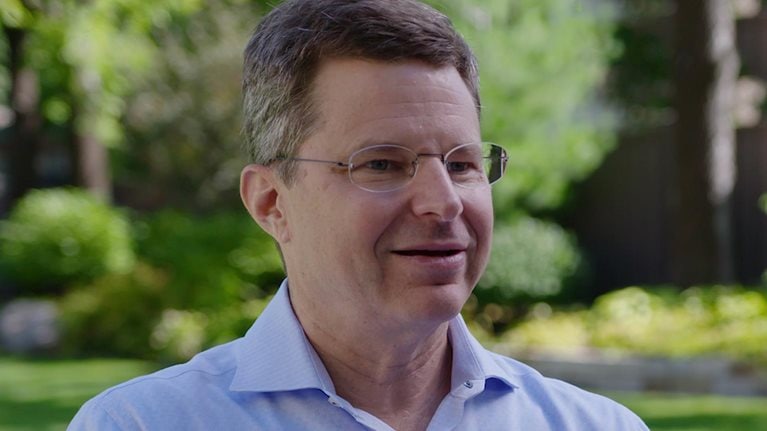“It’s those moments,” says Carlos Lejnieks. “Those moments when a person opens up that door and it is up to you whether you want to walk through it. They didn’t have to consider the possibility, but they did.” The subject is mentoring, something Lejnieks knows firsthand. In the 1990s, after he’d dropped out of high school and was working baseball-memorabilia shows to support his single mother, mentors helped steer him on a journey that ultimately took him to Brown University, Goldman Sachs, and the London School of Economics.
Now, in his 13th year leading the Newark, New Jersey−based chapter of Big Brothers Big Sisters of America (BBBS), Lejnieks oversees a mentoring organization whose staff and volunteers* support 1,100 school-aged children. Nearly all of them live below the poverty line, and a third were referred to BBBS from the state social-welfare system. In this conversation with McKinsey’s Bill Javetski and Dana Sand, edited for style and brevity, Lejnieks explored the range of roles that mentors play—from caring for disadvantaged children to meeting the modern corporation’s talent needs.
McKinsey: Your organization relies on human connection for its mission. The COVID-19 pandemic must have been a direct challenge.
Carlos Lejnieks: The pandemic has reinforced the power of and need for human connection in general, but particularly for our kids. We have a running average of 95 percent high-school graduation rates for kids supported by mentoring relationships, and they often attend schools whose graduation rates are half of that. We assign a lot of positive attachment to education, and when kids start disconnecting from their educational aspirations, as they did last year, it’s a slow drip to an eventual increase in dropout rates. We saw that magnified in the pandemic. One thing we tried to do was provide more online programming to make up for what had been exclusive, in-person relationships prepandemic. We also saw an increase in depressive spiraling among our kids. These are strains that everyone can empathize with, but I’ve never heard those themes expressed as much by parents.
McKinsey: As an organization, how do you frame the mentor’s role?
Carlos Lejnieks: This is a life thing, not a job thing. Kids need critical supports—school-based supports, family supports, social supports—that go beyond the classroom. Nationally, Big Brothers Big Sisters has been a component of that for a hundred years. We’re not a silver bullet but part of a solution. We try to provide more stability in our kids’ lives. Many have the benefit of strong parents, strong guardians, strong family members. We try to support them in school, at home, and in the delta between the two. If there’s an x-factor in that equation, a variable—maybe it’s some personal trauma or the temptation of joining a gang that could derail them—we try to redirect it by having a regular, stable, committed, positive adult present.
McKinsey: In what direction do you try to lead them?
Carlos Lejnieks: We’re not trying to structure our “Littles”1 to be a “mini-me.” We’re trying to help kids write their own story on their own terms and to see things that they might not see in themselves. If children can feel valued and can have someone love them and support them and be their champion, that’s the game changer. We try to do that for kids who could use a little more of that because of adversity in their lives.
McKinsey: Mentoring: natural impulse or acquired skill?
Carlos Lejnieks: Natural impulse. But, of course, it can be honed and coached to be improved. The core is learning to capture part of a human experience, of getting that human exchange and giving it.
McKinsey: What can your Littles’ backgrounds teach leaders about mentoring?
Carlos Lejnieks: People, if they are honest, vulnerable, and self-reflective, know they’ve felt what our children feel. At some point, they weren’t Harvard graduates, they weren’t career professionals. At some point, they’ve looked to their right and left and said, “I don’t know if I belong here.” There’s a part of that that is an empathetic line that cuts through it all and where a mentor can have an enormous impact. You count your blessings when you’ve overcome all that and blossomed and manifested your potential, but if you look back, we’ve all had that feeling. That’s where our kids are.
McKinsey: What lessons for business leaders come from these exchanges?
Carlos Lejnieks: Our Bigs and Littles test truisms for leaders in corporate settings every day: the value of empathetic listening, of commitment to growth and development. Research shows that nearly half of millennials who describe themselves as disengaged at work strongly agree that they will change jobs if the job market improves in the next 12 months. The churn has a cost: constant training, onboarding, departing, repeating. Their decision about where to go, or whether to stay, is often driven by how they view a company’s corporate social responsibility. Mentoring facilitates really good dialogue. Managers who get that will keep their teams for longer, increasing employee tenure and productivity and building a more diverse talent pipeline. So mentoring is a noble cause, but it’s also a business imperative. Younger employees demand it.
McKinsey: What should a good mentor focus on?
Carlos Lejnieks: Care is the biggest thing, but the through line is commitment, consistency, and communication. There’s a commitment to honoring the child, or honoring your staff, and committing to building a relationship. If a Big has to cancel a meeting with their Little because something in life happened, that’s OK; but the commitment to meet again is important. The communication must be in a way that’s caring and that makes that child feel valued, not undervalued, and that they are not lesser in this relationship. That matters in any human exchange. You can only pull being the boss so many times before you lose the troops.
*Disclosure: Bill Javetski, who participated in this interview, volunteered as a Big Brother for eight years. Read his story at bigsandkids.org/bigsoftheyear.


